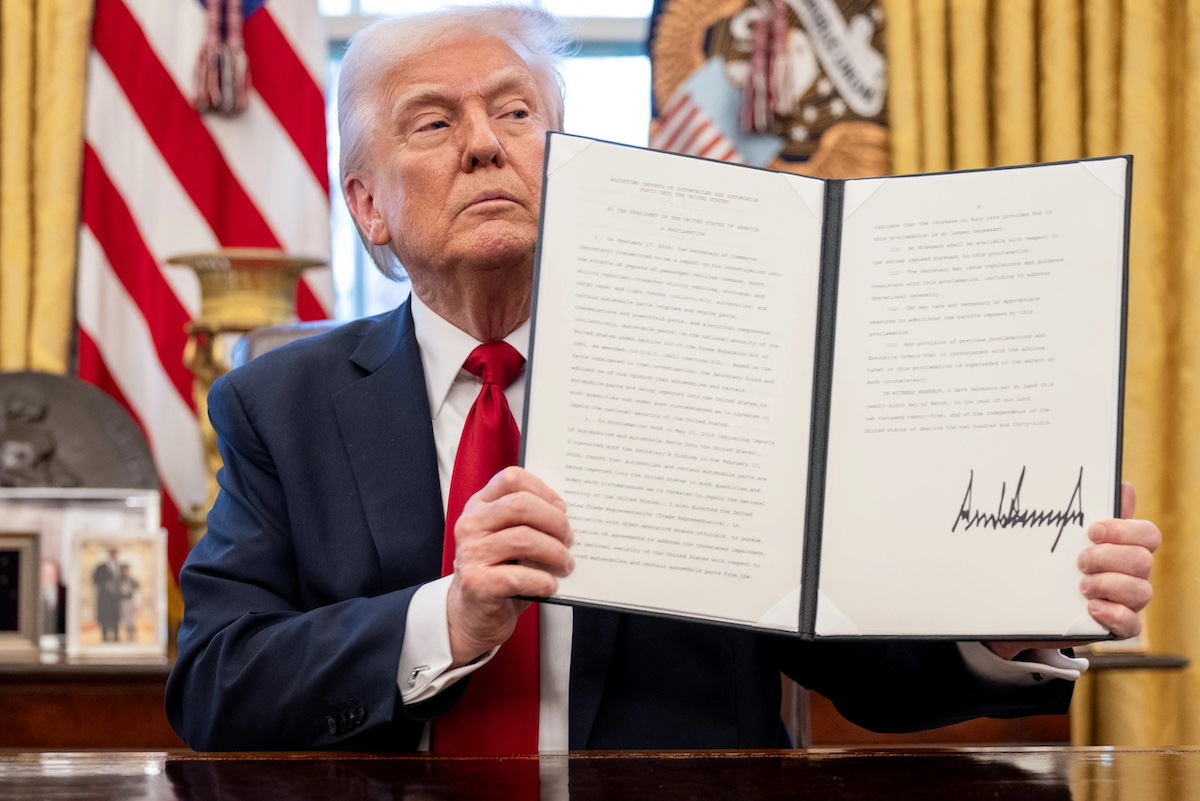As US President Donald Trump enters his second term, his aggressive trade policy has reignited what many are calling a global economic conflict—a de facto World War III without bullets.
New tariffs rolled out in August 2025, with more in the works, are shaking global markets, straining supply chains and threatening livelihoods across continents.
Unlike conventional warfare, this trade war is fought with tariffs, retaliation and uncertain trade deals. But the impact is no less severe. From factory workers in Asia to farmers in North America, millions are caught in the crossfire.
World of uncertainty for business
Trump’s latest wave of tariffs has sent shockwaves through the business world. Companies from Detroit to Dhaka are scrambling to adjust to shifting costs, delayed shipments, and volatile demand.
Firms are once again hesitating to hire, expand, or invest. Some are already scaling back production. Small and medium-sized enterprises—especially in export-dependent economies—are suffering most.
As one supply chain manager in Vietnam put it: “We’ve spent the last two years rebuilding after Covid and inflation. Now we’re tearing it all down again because of this trade war.”
Layoffs and lost livelihoods
Rising input costs and shrinking demand are leading many businesses to cut jobs, not create them. The economic promises behind Trump’s tariffs—protecting American jobs and revitalizing domestic industries—are clashing with the reality on the ground.
US farmers are facing new retaliatory tariffs from China, threatening their already-precarious position in global markets. In developing countries, layoffs are widespread, especially in garment manufacturing, electronics assembly and food processing industries that rely heavily on exports.
Developing nations as collateral damage
This trade war is not just a fight between the US and China. Its ripples reach deep into the Global South, where countries that depend on trade with major economies are being dragged into the fray.
In Bangladesh, Cambodia and Nigeria, factories are closing. Port activity is slowing. Currencies are destabilizing. Millions who had only recently climbed out of poverty are now seeing their futures collapse.
For developing nations, trade is not a chess piece in a geopolitical contest—it’s a lifeline. They are the invisible casualties of this economic conflict.
Ally under fire
Even the US’s closest allies haven’t been spared. Canada is once again facing U.S. tariffs, particularly on aluminum, solar panels and some agricultural products.
While Canada remains a party to the USMCA, the agreement doesn’t shield it from unilateral actions by the US president under Section 232 of the Trade Expansion Act—allowing tariffs on the basis of “national security.”
This proves that even formal trade agreements offer little real protection in a system dominated by unpredictable, politically motivated policies.
What happened to free trade?
Trump’s ongoing trade war has undermined decades of American leadership in building a rules-based trading system. The US once led the push for open markets, global cooperation, and dispute resolution mechanisms.
Now, it has become one of the leading sources of uncertainty—with tariffs as threats, not tools, and agreements treated as optional rather than binding.
If the US can impose or ignore rules at will, what incentive do other countries have to stick to them?
Once again, the World Trade Organization (WTO) is watching from the sidelines. With its dispute resolution body still crippled and no meaningful reform in sight, the WTO has failed to respond to this growing crisis.
Without a functioning enforcement system, the rules of global trade are reduced to suggestions—and global trust is crumbling.
Zero-sum thinking
At the core of Trump’s approach is a zero-sum philosophy: that any gain by another country must be a loss for the US. But that doesn’t match how the modern global economy actually works.
One country’s import is another’s export. One company’s supplier is another’s customer. Disrupting trade damages everyone in the chain, especially workers at the bottom.
Trade, when cooperative and fair, is a positive-sum system. But when weaponized for political points, the damage is universal.
Nobody wins this war
Trump’s second-term tariff war is already causing widespread disruption. If left unchecked, it risks pushing the world economy toward deeper fragmentation, financial instability, and rising inequality.
The promise of global trade has always been mutual growth and shared prosperity. But today, it is being twisted into a tool of confrontation.
If trade becomes war, everyone loses. Businesses lose clarity. Workers lose income. Developing nations lose hope.
It’s not too late to turn back. But doing so will require bold leadership, trust in international institutions, and a renewed commitment to trade not as a weapon—but as a bridge.
